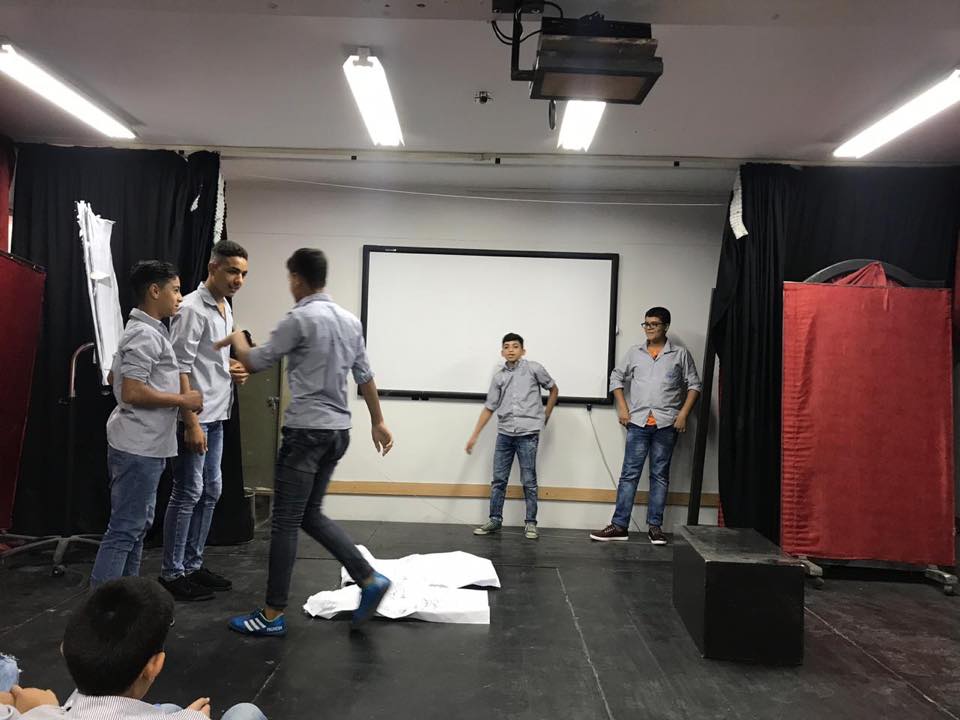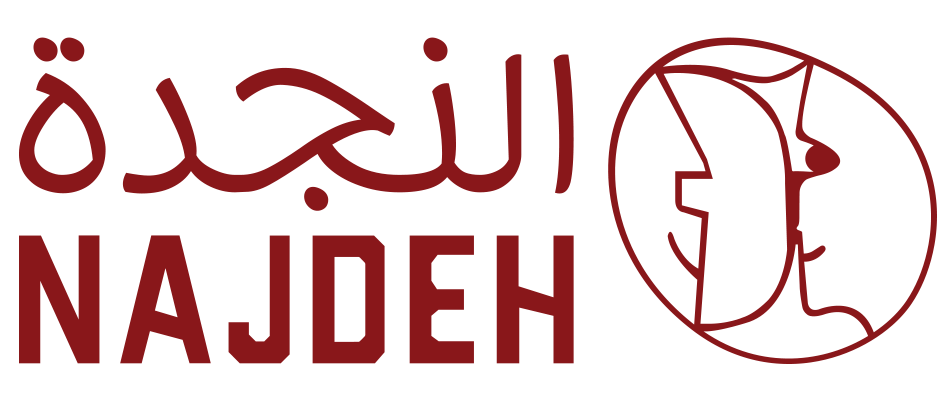
Association Najdeh presents the impact of UNRWA’s current and potential health and educational reductions on Palestinian refugee women and girls in Lebanon
Association Najdeh presented the results of the qualitative study on the impact of assessment of the current and potential health and educational reductions of UNRWA for Palestinian women and girls in Lebanon. The meeting was organized by Najdeh and with the attendance of the representatives of embassies and the European Union, local NGOs operating in the Palestinian field, political parties and popular committees in the Riviera Hotel, in Beirut.
The study, prepared and presented by Dr. Rebecca Roberts, focused on the situation of the Palestinian refugee women and girls in Lebanon and Palestinian refugees in Syria who rely mainly on UNRWA for basic services such as health and education. The restrictions on the right to work and the right to own property, and freedom of movement limits the ability of Palestinians to support themselves financially, in the absence of alternative and affordable health and education services outside UNRWA.
Roberts indicated that the funding for aid to Palestinian refugees in Lebanon is declining as the United States cuts funding completely for UNRWA, while organizations and NGOs are struggling to obtain funding to respond to the urgent needs of Palestinian refugees, especially after UNRWA responded to the financial crisis by reducing many of its services, such as university scholarships, vocational training courses, and the percentage covered by hospitalization, including delivery, health care facilities, available medicines and access to specialized doctors.
The study showed the impact of UNRWA education funding cuts on girls, who would have few opportunities for social integration after dropping out schools and would be kept at home to help with housework and face early marriage if families could not support them. Also, without education, illiterate women will have difficulty in daily life and access to their rights, will not have fair employment opportunities and girls will be more vulnerable to exploitation in low-wage jobs and difficult circumstances.
The study also showed that without UNRWA’s primary health care, women and girls will face health problems affecting them and their life in the period of giving birth, and the cost will lead to increased expenses for low-wage families and lack of access to appropriate medical assistance in case of complications. Children cannot access UNICEF vaccines, and many health conditions can contribute to violence and family problems.In terms of employment opportunities, they will become very few if UNRWA no longer exists. More than 3,000 Palestinian jobs, and more than half are occupied by women, will be lost. (UNRWA figures, January 2018). The study pointed out that organizations and NGOs complement UNRWA health and education services by providing home visits to patients, health education, some financial support for medical treatment, pre-school education, post-school and summer activities, psychological support, and support for persons with disabilities to reach UNRWA, and limited support for the elderly, but this cannot be a substitute for UNRWA and its services.
The study found that Palestinian women and girls in Lebanon, through UNRWA health and education services, were able to exert greater control over their lives and opportunities, while the lack of clarity about the financial crisis and the future of UNRWA increased the pressure on Palestinian refugees. Refugees, including women & girls, must be consulted about the services they need most and how changes affect their lives. This requires more effective collaboration between UNRWA and NGOs to determine how to maintain and improve health and education services and long-term planning for delivery of services and identification of challenges.
The participants stressed the importance of the study and highlighted the specific aspects in which Palestinian refugee women and girls in Lebanon could be affected by the cuts in education and health services, stressing the need to work together to face the increase of the potential reductions in 2019. Ms. Roberts also made several recommendations, most notably, the need to show the status of girls and women with disabilities in the study, in terms of education and health.
Researches were carried out from mid-January to mid-February through conducting focus groups in cooperation and coordination with a group of NGOs and organizations. The study covered girls and women aged 15 years and up to 60 years and more, in camps and gatherings in Lebanon, on official and specialized sectors that work with Palestinian refugees in Lebanon.
